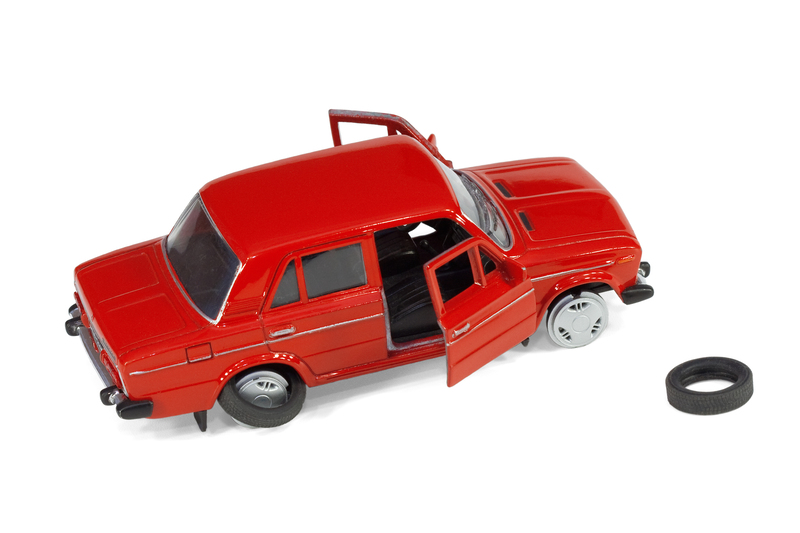Be Part of the Solution: Reduce Plastic Waste Now
Plastic waste has become one of the most pressing environmental problems of our time. From oceans to landfills, discarded plastic is everywhere - and it poses a critical threat to our planet's health and future. But you can be part of the solution. This comprehensive article provides actionable steps to reduce plastic waste, highlights the environmental impact of plastics, and emphasizes the collective power of individual choices. Ready to make a difference? Read on and join the movement to cut down on plastic now!
Understanding the Plastic Waste Crisis
The production of plastics has skyrocketed in the past few decades. Millions of tons of plastic are produced each year, with a significant proportion ending up as waste. Unlike other materials, plastic takes hundreds of years to decompose, lingering in our environment and posing long-term risks to wildlife and humans alike.
Devastating Consequences of Plastic Waste
- Wildlife Endangerment: Animals often mistake plastic for food, leading to injury, starvation, and even death.
- Ocean Pollution: Eight million tons of plastic end up in the oceans every year, harming marine life and contaminating the food chain.
- Human Health Risks: Microplastics have been discovered in drinking water and food, with potential links to various health issues.
- Resource Depletion: Most plastics are made from non-renewable fossil fuels, contributing to resource depletion and climate change.
Why Reducing Plastic Waste Matters
Cutting back on plastic use helps protect biodiversity, preserves natural resources, and minimizes pollution. Small changes in lifestyle can lead to a massive positive impact on communities, ecosystems, and future generations.

How You Can Reduce Plastic Waste: Practical Strategies
Taking action to reduce plastic pollution in your daily life is easier than you think. Below are some effective strategies you can start using right away.
1. Rethink Your Shopping Habits
- Carry Reusable Bags: Make a habit of bringing cloth or sturdy reusable bags for all your shopping trips. Say no to single-use plastic bags.
- Opt for Products with Minimal Packaging: Choose items that use little to no plastic packaging. Support brands that are committed to eco-friendly packaging solutions.
- Buy in Bulk: Reduce waste by purchasing goods in bulk, minimizing plastic wrappers and containers.
2. Ditch Single-Use Plastics
- Invest in a Reusable Water Bottle: Instead of buying plastic bottles, carry a stainless steel or glass bottle for drinking water.
- Use Refillable Coffee Cups: Many coffee shops now support refillable cups--save money and cut waste with each visit!
- Avoid Plastic Straws and Cutlery: Carry your own set of reusable straws and utensils and make a statement against single-use items.
3. Make Smart Food Choices
- Choose Fresh Produce: Shop at your local farmer's market and buy loose fruits and vegetables instead of pre-packaged options.
- Pack Lunches Sustainably: Use lunchboxes and reusable food wraps instead of plastic bags and cling film.
- Support Zero-Waste Stores: Seek out stores that offer packaging-free shopping for pantry staples, snacks, and household items.
4. Recycle Properly--and Consistently
- Learn Recycling Guidelines: Understand your local recycling rules to ensure that more plastics are effectively recycled.
- Clean Items Before Recycling: Dirty materials can contaminate entire batches, consigning them to landfill.
- Participate in Community Recycling: Join local recycling drives, and encourage friends and family to recycle better.
5. Encourage Others and Advocate for Change
- Spread Awareness: Share information about plastic waste reduction at school, work, or on social media.
- Support Policy Changes: Advocate for bans on single-use plastics or support local legislation aimed at reducing plastic pollution.
- Join Clean-Up Initiatives: Become involved in beach, river, or community clean-up projects to directly reduce existing plastic waste.
The Role of Businesses and Governments in Plastic Solutions
While individual actions to reduce plastic waste are critical, real change also requires the support and commitment of businesses and governments. Here's how large-scale efforts are shaping a more sustainable future.
Corporate Responsibility
- Eco-Friendly Packaging: Many companies are transitioning to compostable, biodegradable, or recyclable packaging options.
- Product Redesign: Businesses are redesigning products to use less plastic and make recycling easier.
- Plastic Take-Back Programs: Some brands now offer programs to collect and recycle used packaging or products.
Government Initiatives
- Plastic Bag Bans: Many countries and cities have banned single-use plastic bags, reducing waste significantly.
- Extended Producer Responsibility (EPR): Policies that hold producers responsible for the entire lifecycle of their products, encouraging sustainable design.
- Investment in Recycling Infrastructure: Increased funding for advanced recycling systems makes it easier for plastics to be processed effectively.
Together, policy, innovation, and consumer action can create a circular economy that drastically reduces plastic waste.
Innovative Solutions to Cut Down on Plastic Waste
New technologies and sustainable alternatives are paving the way for a world less dependent on plastics. Here are some promising trends and products that can help households and businesses minimize plastic waste:
- Biodegradable Plastics: Made from plant-based materials, these break down more quickly and safely than traditional plastics.
- Edible Packaging: Food wrappers made from seaweed or rice that can be eaten or composted.
- Reusable Containers and Wraps: Products like beeswax wraps and silicone containers eliminate the need for single-use plastics in the kitchen.
- Eco-Friendly Cleaning Products: Many companies now offer concentrated cleaning solutions in refillable glass or metal bottles.
- Bottle Deposit Schemes: Systems where bottles are returned, sanitized, and reused--drastically reducing new plastic production.
By choosing innovative products and supporting pioneering brands, you actively become part of the solution to plastic waste.
The Power of Community: Working Together to Reduce Plastic Waste
When communities unite, real change happens. Organizing neighborhood projects or joining local groups accelerates progress towards a plastic-free future.
Community-Based Actions
- Local Swaps: Organize swaps for reusable shopping bags, water bottles, and containers.
- Plastic-Free Events: Host or participate in events that promote plastic-free living.
- Educational Workshops: Host sessions that teach about recycling, composting, and sustainable living.
Every small action, multiplied by many, creates a significant impact. By working together, we can get closer to a future with less plastic waste.

Frequently Asked Questions About Reducing Plastic Waste
Is recycling enough to solve the plastic waste problem?
Recycling is essential, but alone it can't solve the issue. Less than 10% of plastics ever produced have been recycled. The key is to reduce consumption, reuse what we can, and recycle as a last resort.
What are the simplest ways to start reducing plastic in my life?
Begin by refusing single-use plastics: say no to straws and bags, carry a water bottle or coffee cup, and opt for products with minimal packaging. Small steps add up over time!
How can I encourage my community or workplace to cut down on plastic?
Lead by example, share information, and get involved in local initiatives. Propose waste audits, switch to reusable supplies, and support local laws against single-use plastics.
Start Today--Be Part of the Solution to Plastic Waste
The plastic waste crisis may seem overwhelming, but every individual's effort truly counts. By rethinking our habits, supporting responsible businesses, participating in advocacy, and joining community actions, we can lessen our collective plastic footprint. Don't wait for tomorrow--the time to act is now!
Key Steps to Reduce Your Plastic Footprint Today:
- Say no to disposables.
- Carry reusables everywhere you go.
- Shop wisely and support eco-friendly brands.
- Encourage others to join the movement.
- Engage in local cleanups and educational events.
Together, let's become champions for a cleaner, greener planet. Be part of the solution and help reduce plastic waste now--for ourselves, our communities, and the generations to come!